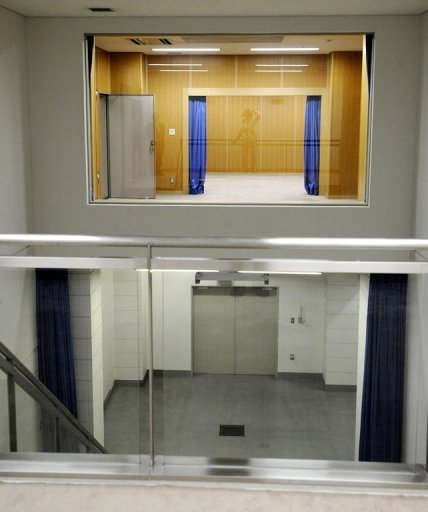- Dettagli
- Categoria: Death Penalty News
- Pubblicato: 07 Aprile 2014
 |
| Execution chamberat Tokyo Detention Center |
The world’s longest-serving death row inmate, Iwao Hakamada, was released after 48 years in prison, when a judge last month found that “the possibility of his innocence has become clear to a respectable degree.” Mr. Hakamada’s case is another strong argument for the abolition of the death penalty.
Mr. Hakamada was sentenced to death for the 1966 murder of the manager of the company where he worked, the manager’s wife and two children in their house. Mr. Hakamada admitted guilt after a severe interrogation in which he was beaten and deprived of sleep. But in court, he retracted the confession. The prosecution introduced as evidence blood-stained clothing, with the blood type matching that of Mr. Hakamada and the victims. That and his confession proved decisive.
The conviction rate in Japan is almost 100 percent, and most convictions are based on confessions. The notion of false convictions is largely rejected, and appeals based on prosecutorial error or misconduct are rarely successful.
The break in this case came recently when the obstinate defense team won its argument that DNA testing, which the Japanese police began to use in 1989, should be done on the clothing. There was no match. The judge suggested that the prosecution had fabricated evidence, and he ordered the release of Mr. Hakamada, who is now 78 and senile.
Source: The New York Times, The Opinion Pages, Editorial, April 6, 2014
Leggi tutto... http://deathpenaltynews.blogspot.com/2014/04/japans-death-row.html








